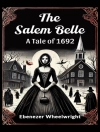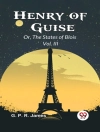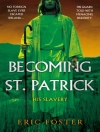In ‘Griffith Gaunt, ‘ Charles Reade crafts a compelling narrative that navigates the complexities of love, duty, and moral conflict, set against the backdrop of Victorian society. The story follows the titular character, Griffith Gaunt, whose tumultuous emotions and inner turmoil are rendered through Reade’s eloquent prose and vivid characterizations. Combining realism with a deep psychological exploration, Reade’s work reflects the 19th-century preoccupation with social issues while critiquing the conventions of his time, particularly in his examination of gender and class dynamics. Charles Reade, an English novelist and playwright, is well-regarded for his dedication to exposing social injustices in literature. His background in law and experiences from various walks of life illuminate the themes of moral ambiguity and societal critique present in ‘Griffith Gaunt.’ His insights into human nature, influenced by a range of social and political engagements, lend a rich depth to the characters and their struggles within the novel. For readers seeking a thought-provoking exploration of the human condition and societal constraints of the era, ‘Griffith Gaunt’ is an essential read. Reade’s masterful storytelling invites readers to reflect on their values and the complexities of human relationships, making it a timeless addition to the canon of Victorian literature.
เกี่ยวกับผู้แต่ง
Charles Reade (1814-1884) was an esteemed English novelist and playwright, best known for his commitment to championing social reforms through his literary works. With a penchant for immersing himself in meticulous research, Reade’s narratives often expose the injustices and iniquities of Victorian society. His novel ‘Griffith Gaunt, ‘ published in 1866, is exemplary of his engagement with the social mores and marital dilemmas of the era. Reade, born in Ipsden, Oxfordshire, studied at Magdalen College, Oxford before embarking on his literary career. Having practiced law for a short period, he shifted focus to literature, weaving elements of realism with sensationalist plot elements to captivate a diverse readership. Reade’s storytelling prowess is marked by intense melodrama and robust characterization, through which he dissected the manifestations of social evils pervasive in his contemporary society. Although ‘Griffith Gaunt’ was among his celebrated works, Reade achieved considerable acclaim for his novel ‘The Cloister and the Hearth’, regarded as his masterpiece. His literary style, often reflecting a sense of activism, made him a pioneer in discussing issues from the rigidity of divorce laws to the malpractices in private lunatic asylums. Reade’s concern for accuracy and detail not only renders authenticity to his novels but also echoes his broader literary artistry that continues to resonate with critics and readers alike.












